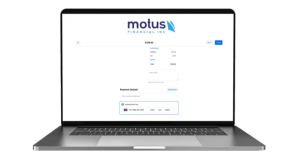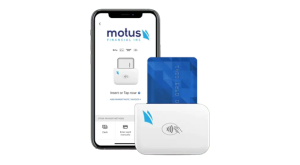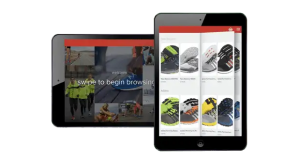Accepting Online Payments Through Your Website
Buying a new outfit or making a utility payment online is a common occurrence these days. So why aren’t more businesses accepting online payments for service-based invoices? The most common reason is that it’s hard to implement and can expose a business to risk. The reality is that it’s simple, low risk, and is something you already have access to through your credit card payment processor.
In this article, we’ll explore several methods for accepting payment through a website, but it all starts with something called a payment gateway.
What is a payment gateway?
A payment gateway processes credit cards at online and offline stores. It transfers the key information between websites/mobile devices and payment processors/banks, and vice versa. So if an individual decides to integrate payment into a website and make user experience smooth, think of the gateway as a tool to deal with all the financial transactions online.
Basically, it’s an online representation of a real point of sale terminal that you see in retail stores. To ensure the transaction safety and protect from fraud, a payment gateway encrypts all sensitive information: credit card number, expiration date, and CVV code.
How does a payment gateway work?
The main task of a payment gateway is to process credit card information of online customers dropping to your e-commerce store for example.
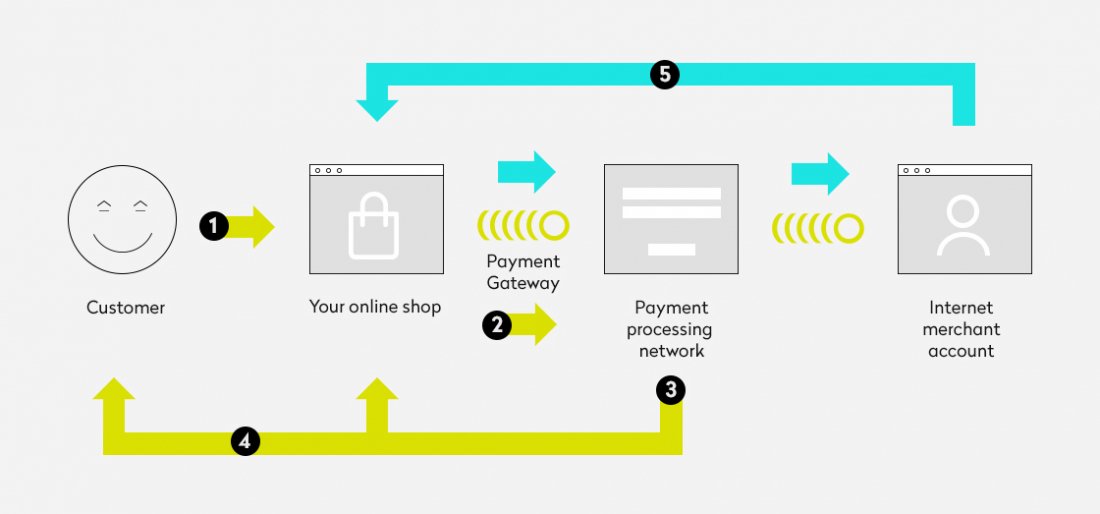
- The customer presses the “Place order” button at checkout. The browser encrypts the payment details and sends them to the merchant’s web server via SSL connection.
- The merchant sends these details to a gateway – again via an encrypted SSL connection.
- The payment gateway sends the information to the payment processor, which, in turn, forwards it to the card association (Visa, MasterCard, etc.).
- The bank that issues the credit card receives an authorization request and sends a response code back to the payment processor. The response code contains information about the transaction status (approved or failed) and the error code in case the transaction failed (insufficient funds, etc.).
- The payment processor sends the response code on to the gateway, and from there it’s forwarded back to the website.
- The website displays a relevant message to the customer.
The whole process takes as little as 2-3 seconds!
Payment gateway types and providers
There are two types of payment gateways to enable – non-hosted and hosted.
Hosted payment gateways
These gateways take your customer away from the website to complete the payment and then redirect them back once the process is complete. For most providers, simply add a link or a PAY NOW button to your website and your setup is complete.
If you already did some homework and read about how to add a payment gateway in a website, you must have heard about the most well-known hosted gateways such as Authorize.net.
Authorize.net is the workhouse of the online payment gateways. It accepts all major credit cards and works with digital solutions like PayPal, Visa Checkout, and Apple Pay. It also identifies and manages potential fraudulent transactions via Advanced Fraud Detection Suite™, provides address verification service, card code verification, and supports Verified by Visa and MasterCard SecureCode™.
Non-hosted (integrated) payment gateways
Now let’s look at payment gateways that smoothly integrate into a website and keep the user only at the store or platform without taking them away and pay somewhere else. The majority of non-hosted gateways come with extensive APIs and readily available modules to integrate into a shopping cart.
Let’s take a look at some of the non-hosted payment gateways, go through their features and fee structure.
Payment gateway for a website: transaction types
Before jumping into the details of payment gateway integration, let’s see what types of payment transactions exist. Depending on the type of business, pick a specific one for your e-commerce site or portal.
The common transaction types are authorization, capture, sale, refund, and void.
Authorization
This type is used to determine the customer’s ability to pay and find out if there are enough funds on their credit card. The actual fund transfer doesn’t take place in this case. It makes sense to use the authorization transaction type if it takes some time to ship the products ordered online and guarantee the funding by the card issuer.
Capture
Capture transaction lets you capture the money that was previously authorized and send it for settlement. Thus, if a product was sold online that took time to manufacture/prepare for shipping, authorize the payment, and when the product has been shipped – capture the amount, and it will be transferred to the account.
Sale
Sale transaction combines authorization and capture. If businesses fulfill orders immediately that’s the transaction type that should be used – the money is charged and transferred at once. It will also be suitable if selling a service membership and immediately providing the user with access.
Refund
Things happen, and if an order has to be cancelled for some reason, the merchant will need to refund a transaction and submit it for processing. Most of the time, a refund is limited to the original amount authorized and can only be applied to Sale and Capture transactions.
Void
A void transaction is similar to a refund, but it can only be applied if the transaction hasn’t been settled yet. Typically, the transaction will disappear from the customer’s account statement within 24 hours, while it may take 3 to 5 business days to process a refund.
We know sometimes it’s not that easy to decide provided the number of options, so no matter what – count on us and we can talk about how to create a payment gateway for a website with no hassle. We’ll be glad to answer any remaining questions you have, explain how to include payment gateway in website further.
ABOUT US
Motus Financial, located in Sun Prairie, WI provides Point-of-Sale (POS) technology solutions and credit card processing services. Locally owned and operated Motus Financial provides a complete suite of POS technology services to assist merchants in processing payment from credit cards, debit cards, and checks. Motus financial can also provide check processing as well as a customized gift card program for your business.
For more information, please contact us at 608-819-8666 or check out our website at www.motuscc.com and we look forward to assisting you.

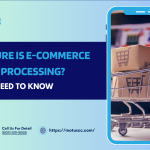
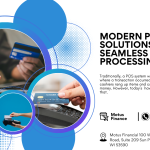

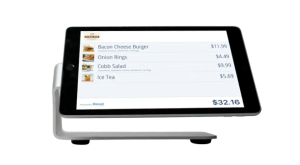 Our POS systems are designed to streamline in-store transactions. With features like inventory management, sales reporting, and customer tracking, our POS solutions help you run your business more efficiently. Our terminals are compatible with various payment methods, including chip cards, contactless payments, and mobile wallets.
Our POS systems are designed to streamline in-store transactions. With features like inventory management, sales reporting, and customer tracking, our POS solutions help you run your business more efficiently. Our terminals are compatible with various payment methods, including chip cards, contactless payments, and mobile wallets.